The Bass Kleph Blog
Music Producer Tips & Tricks
The Secret Sauce to Music Success: Mastering the Art of Fast Track Finishing
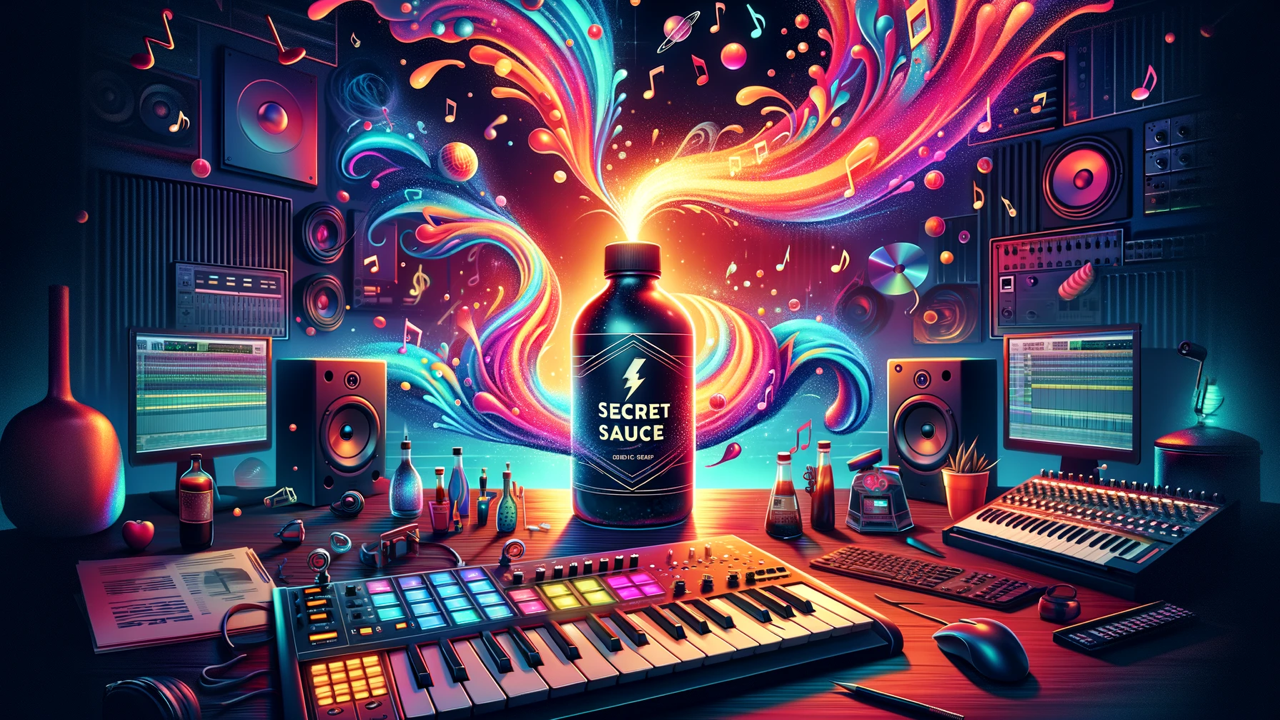
Getting more songs finished in a faster amount of time is the Secret Sauce to elevate your music production skills to the level where you will be proud of your music, get signed, build a following, and get booked for shows.
Let me explain why, with two big reasons.
#1 - You will fill the gaps in your knowledge.
Some people write loops and sketches and then decide it all feels too hard to finish. So they give up and start a new sketch. (Sound familiar?)
They have no trouble starting a new sketch as they have started sketches many times before. They have practiced that.
But they have not practiced the middle to end stages of finishing a song.
So when they reach those stages they get confused, and frustrated.
It feels like the song is not working anymore. Like it is not as effortless and fun.
In reality, this is not true. It is simply that they have not practiced these stages enough to feel comfortable with them.
Now when you get some perspective on this you can see how crazy this...
The Importance of Music Production Skills for DJs
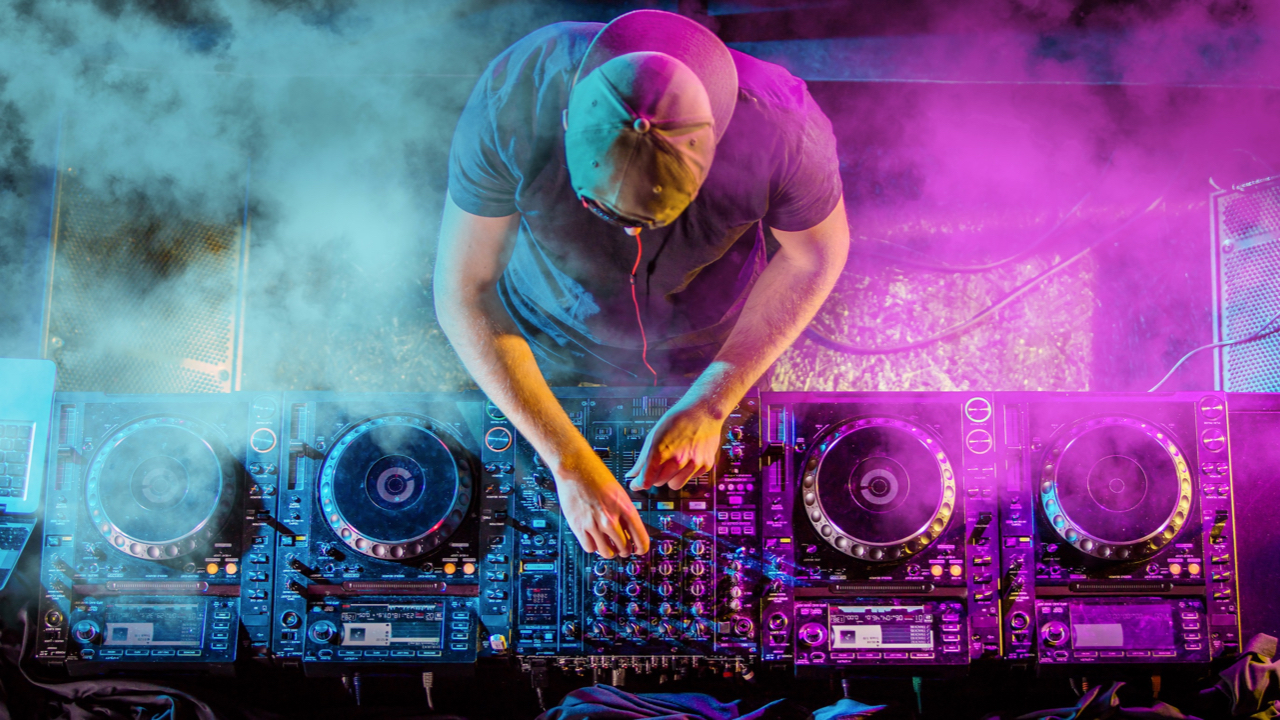
As a DJ, your job is to entertain and move people on the dance floor. To get them to dance. But to be a successful DJ, you need to have more than just a great music selection and technical skills behind the decks. You also need to have strong music production skills. Here's why:
- Creating Original Music: Being able to create your own music can set you apart from other DJs and give you a unique edge in the industry. By producing your own tracks, you have complete creative control over the sound and can tailor your music to your audience's tastes. Better yet, the songs you write and release become evergreen advertising for you as an artist.
- Remixing Tracks: Remixing other artists' tracks is a great way to put your own spin on popular songs and make them your own. With music production skills, you can create your own remixes and stand out from the crowd.
- Collaboration Opportunities: Collaborating with other producers and artists can expand your network and help you learn new skills. B ...
Mixing Drums With Ableton Drum Buss
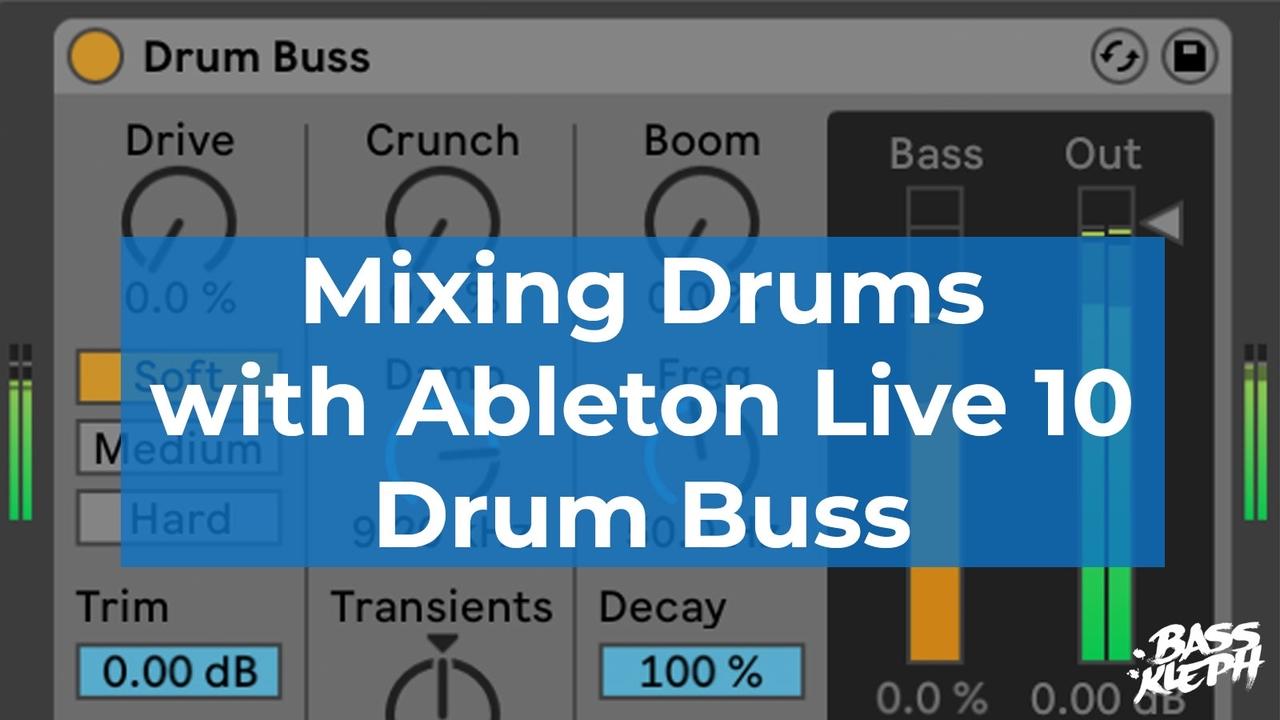
In today's Ableton Live tutorial, we're going to take a look at the Drum Buss plugin. It is one of the new effects that came bundled with Ableton Live 10. This analog-style compressor overdrive and enhancer will give your drums power, energy, glue, and size!
The concept of using compression and overdrive on your drum group is nothing new. In fact, it is something I would do on almost every mixdown. I would usually use a separate compressor and overdrive to achieve this.
Ableton makes this much easier and faster with the new all in one Drum Buss plugin. It is based on compression and overdrive that is pre-optimized for drums and a quick and simple workflow.
As you may assume, the results have been excellent! Check out the walkthrough video lesson, or read on below...
Let's take a look at the three main sections.
Section 1 - The Input Section
Overdrive
Section one begins with a drive control for adding three different types of overdrive.
The soft drive is a waveshaping disto...
Why You NEED To Finish More Songs... & How To Do It FAST!
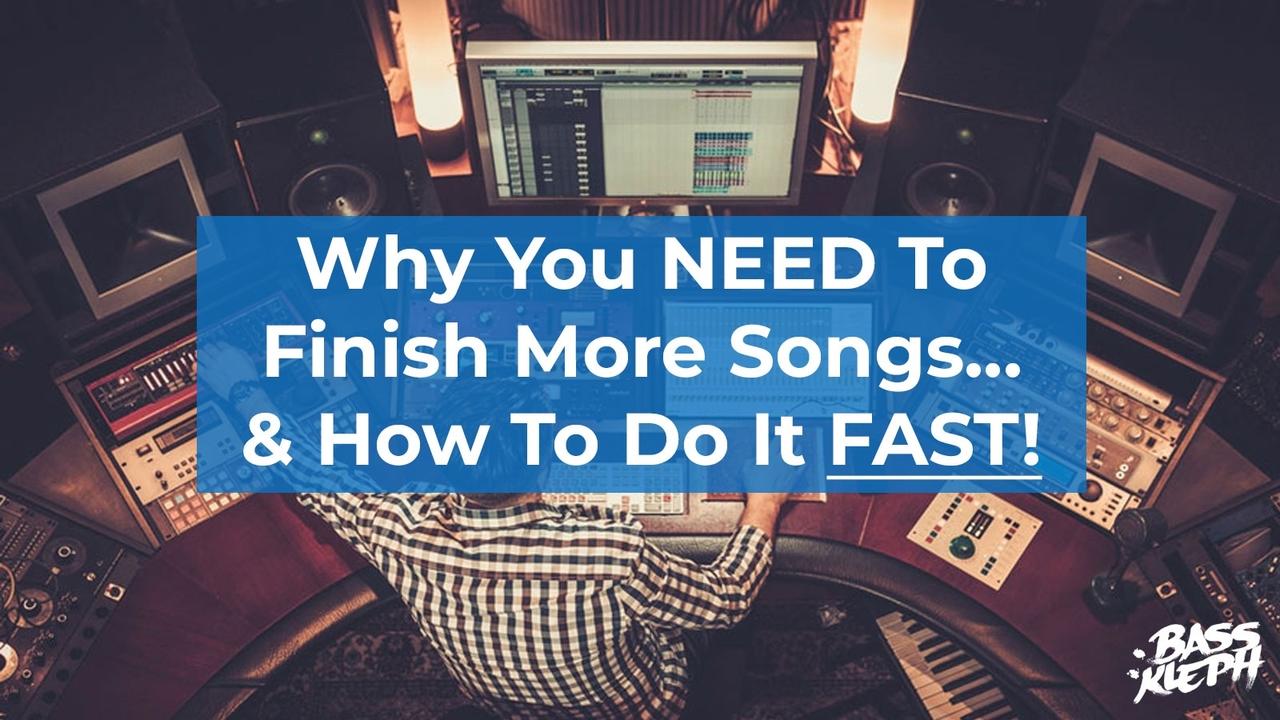
How many songs did you finish in the last year?
...and when I say "finished," I mean you either signed it to a record label, self-released it, or publicly uploaded to SoundCloud for the world to hear.
If it's still on your hard drive, it doesn't count.
So, how many songs did you FINISH in the last year?
1? 6? 12?
If you finished 12 or more songs in the last year, pat yourself on the back! You have become a Prolific Music Producer! Great things are in store for you, and you have probably already noticed the results.
Your fan base is growing, offers for shows, remixes, and collaborations are coming in, and probably some income too.
However, if you finished less than one song a month, then you might not be seeing those same results.
But you have a good excuse, right? ....You want it to be PERFECT. So how can you commit?
Commitment Issues
I get it. Committing to a final version is scary.
It’s your baby. You love it, and it’s scary how people might judge you for it.
Will they...
Drum Programming Tips For Beat Makers & Music Producers

Your drums are the foundation of your song. They are what people dance to. Or not dance to, if they are not done well.
So to become and expert beat maker, you will need to know how to program drums well. Let's get into some tips.
Choose Sounds That Match Your Genre
I am sure you noticed that each genre has its own average tempo and drum patterns. One other thing they have is a style of sounds.
e.g. House Music uses a longer deeper kick than drum and bass, and EDM drums use more aggressive sounds than Tech House. and Techno.
If you want to write a particular style, you need to start with the kind of sounds that match that genre. Get some good drum samples and sample packs, and try not to reinvent the wheel until you have a good grasp of the genre already.
Choose The Best Drum Sounds
The easiest way to choose the best drum sounds is to have them playing in context with your song.
i.e., Test out your drum sounds while your song is playing and make sure they work with the res...
How To Remix A Song: Easy Guide For Competitions, Bootlegs And Official Remixes
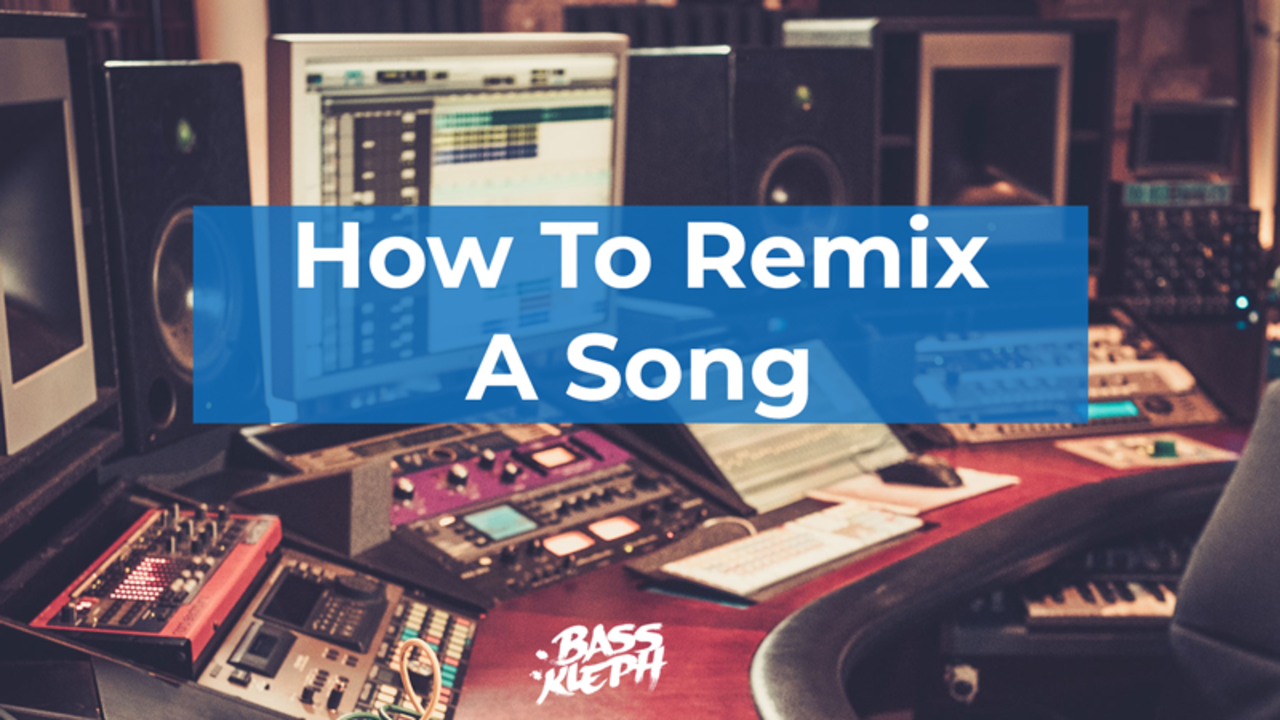
I have done many remixes over the years. In 2010, my remix of Shakedown by Joan Reyes went to #1 on the BeatPort overall chart. It then went on to be the highest selling track on BeatPort for that year. (seriously)
So I am often asked how to make a remix of a song.
It is a unique and fun thing about electronic music and hip hop. We can take one song of any genre, and reinterpret it in our own style. We can make remixes of popular songs, underground songs or anything we like.
But before you can make your own remix songs, there are a few tips you should know about the art of remixing.
The Difference Between A Bootleg And A Remix

An official remix is when the original artist/record label paid you or requested you to make it.
A bootleg is an unofficial (and often illegal) version of a remix. Like "bootleg whiskey” in the prohibition times. These are more common and usually made by DJs who want an alternative version of a song to play at their show.
It is illegal to sell a boo...
8 Kick Drum Mixing Tips For Music Producers
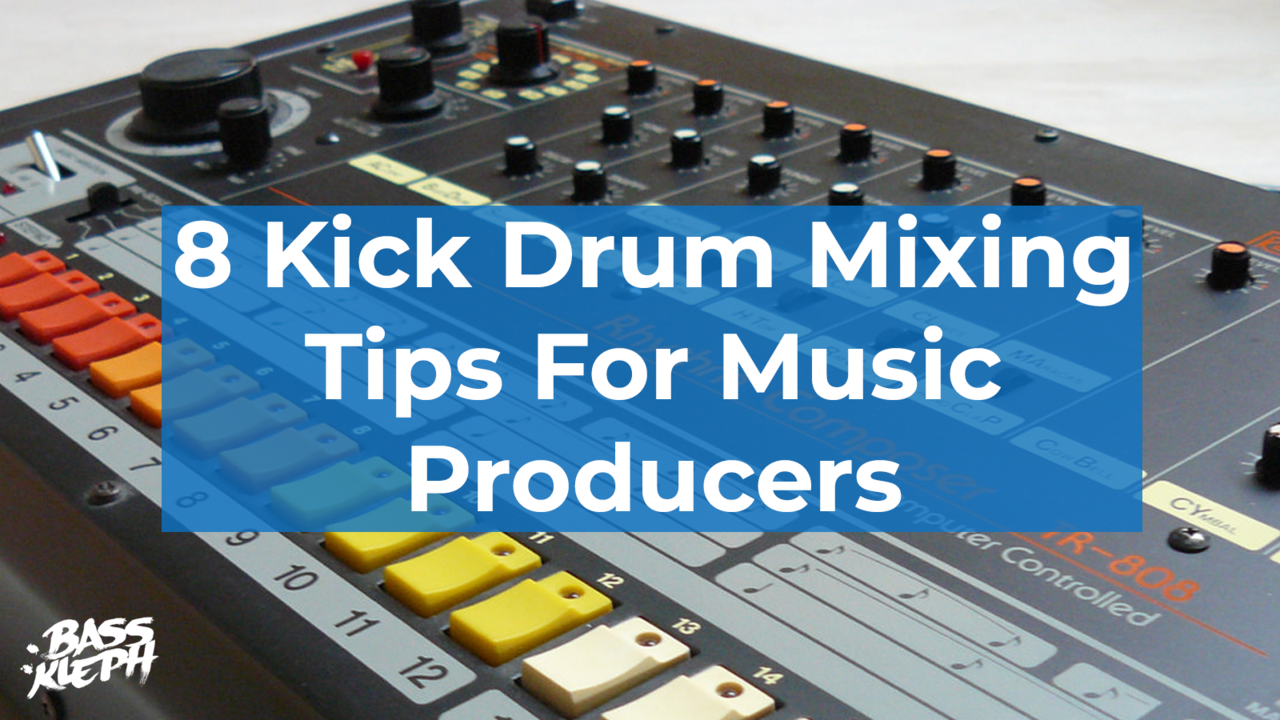
1 - Finish More Songs With Good Kick Drum Samples
This might be unpopular, but I don’t recommend that you use kick drum synth plugins. Too many producers waste time trying to synthesize a good kick when they should be focusing on writing a good song.
You see, the top sound designers that make all the samples for Splice, Loop Master, Vengeace etc have some very nice analog drum machines, very nice analog outboard gear, and many years of experience.

It would be extremely unlikely that you could achieve a better result with a single digital plugin. Even more unlikely that you could do it quickly.
Pianists don’t build their own pianos. They just write music.
At the time of writing, there are 185,575 kick drum samples available on Splice alone. So there is plenty of unique and high quality kick drum samples out there for everyone.
Let your songs define you first. We can look at custom kicks later.
In fact, here’s a free kick drum sample pack from me that you can download now.
2...
20 Sound Design Tricks For Serum & Massive Beginners
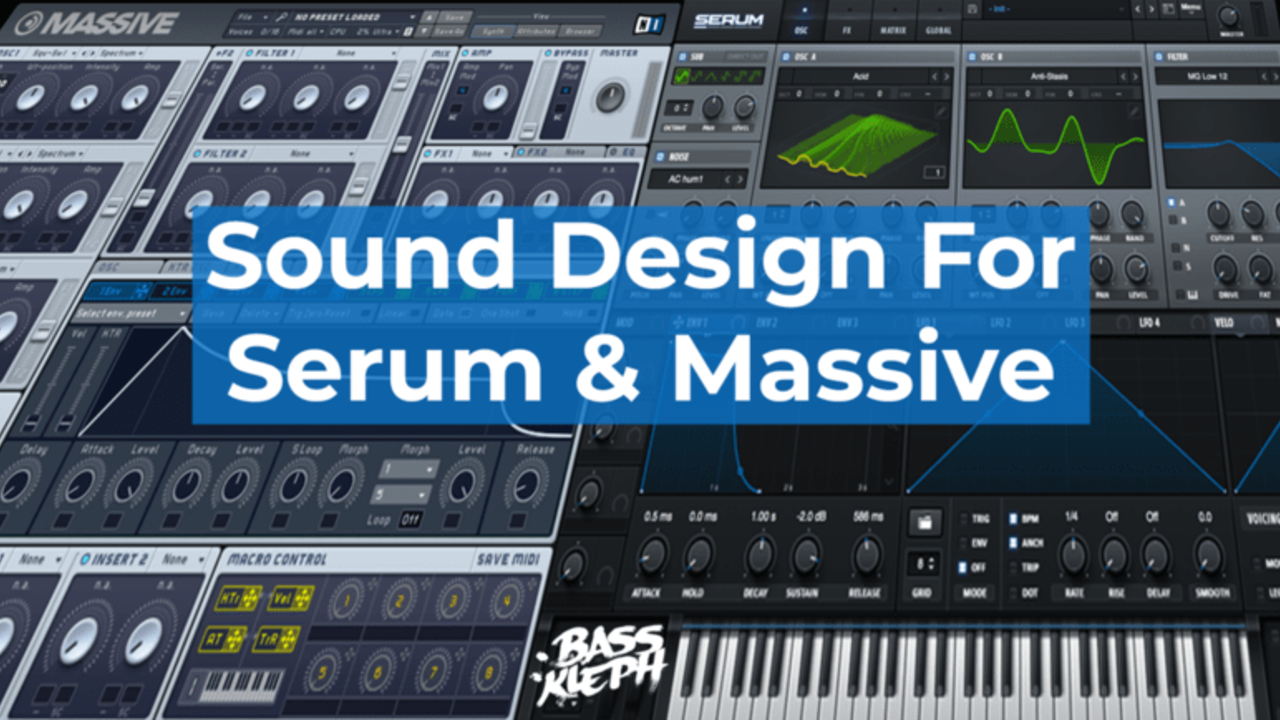
This is a post for people who have been using presets in Serum/Massive and are want to take that next step into making your own sounds. These two synths have a lot of similarities so they are good to explain together.
I'll go over the following things:
- The main sections of serum and massive
- My top sound design tips for Serum and massive
- How to make them sound big
Serum & Massive Synthesizer Sound Design
Serum and Massive are what we call subtractive synthesizers. Subtractive synths start with a lot of tone/noise. We then chip away and remove parts of it until it sounds the way you want.
Kinda like carving a sculpture. You start with a big block of stone, then remove some stone until you get the final shape. Keep this in mind as we explain more.
Oscillators And Wave Tables

The oscillators generate the initial sound that you will later shape and move. Kinda like that big stone you are about to carve. Choose a wavetable, then choose the "position" of the wavetable.
It'...
Audio Compression Explained For Music Producers
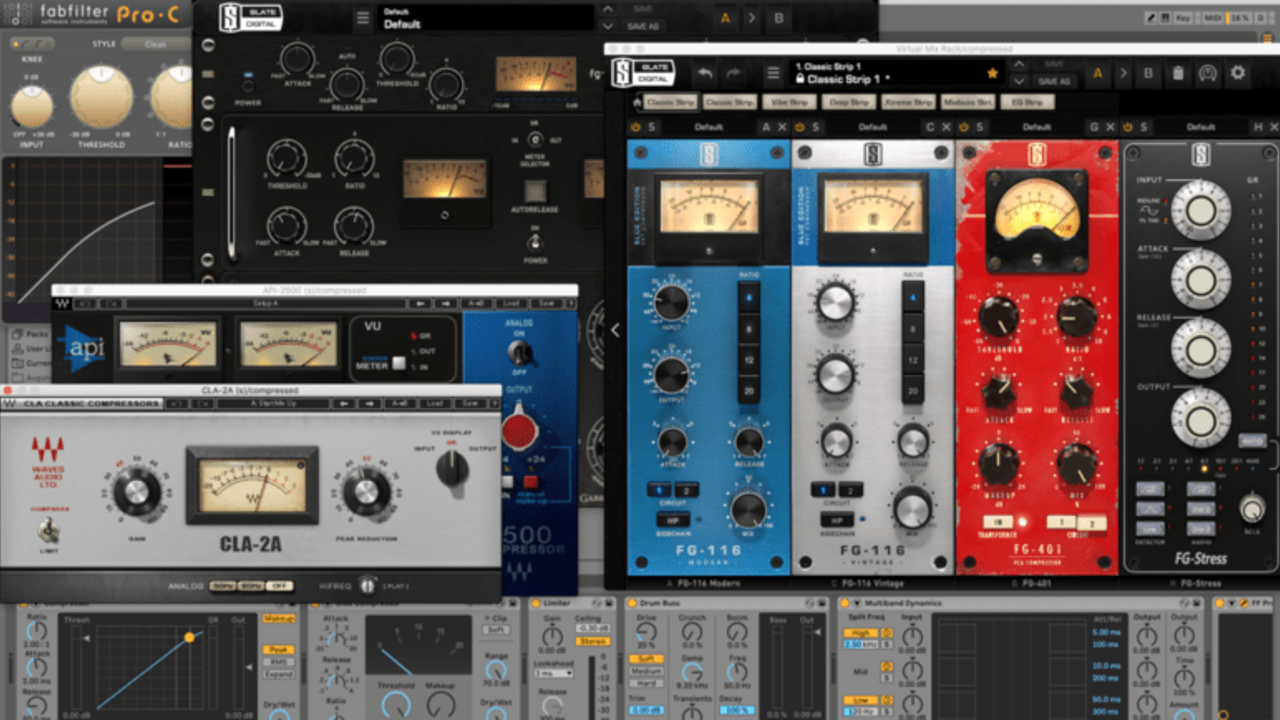
I remember a time when compression felt like some kind of music production voodoo that was far out of my reach.
People would say that... "A compressor makes things fat, or warm" but when I was first using them, I wasn’t sure what was actually happening.
These days, compressors are an integral effect for me. I couldn’t imagine working without them.
If I hadn’t learned how to use them, I would be miles behind with my mixing and mastering. Aside from that, once you know how to use an audio compressor, it's fun! :)
Here are a few tips that will help you along to the way to understanding audio compression.
Do I Need To Use Compression On Everything?
No. Follow my golden rule. Listen first, then only apply something if it needs it.
How do I know if it needs it? Well, you need to know what it does, how it works, and what it’s good for. Let’s explain.
Audio Compression Definition
This is the process of reducing an instrument's dynamic range. Dynamic range is the difference betwe...
Fix A Muddy Mixdown And Make It Clean And Bright
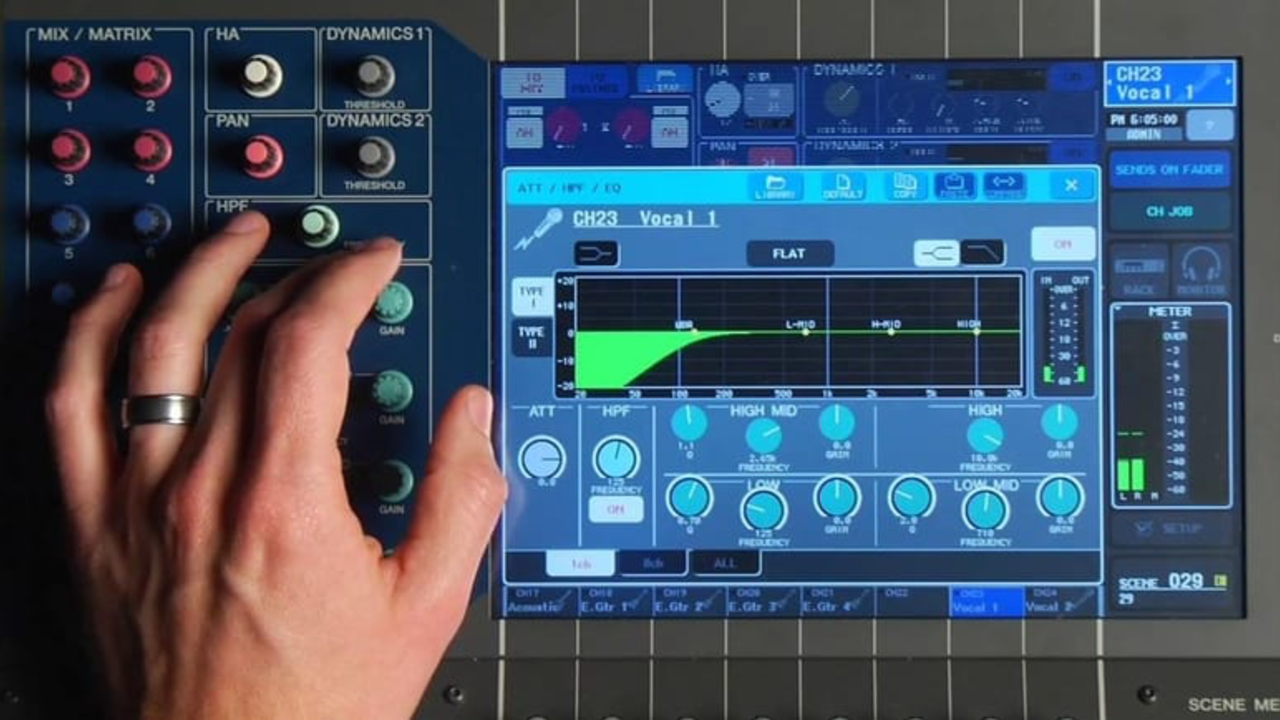
The two main types of bad mixdowns I hear are muddy mixes and thin mixes.
Muddy mixes sound quiet, and kinda like they are foggy, or distant. The sounds and instruments are hard to hear. They have good low end but they not present or as loud as professional mixes. You might also say they have a lack of clarity.
Thin mixes are the opposite. They sound too loud/harsh, and kinda like they lack impact, power, and size. This is usually due to overuse of high pass filters.
Now...The best way to fix these problems is with the individual tracks in your mixdown. Not with your mix bus plugins, but sometimes you have no choice.
So, to clear things up here's a video I recorded with my top mix engineer tips for how to fix your mix and make it clean and bright.
Recently I received a question From Chris W, on my site asking about mastering and how to fix his mixdown.
He says...
"hi I'm a new producer, and I'm fantastic at creating chords and leads but I suck at mastering. I can't afford your...



